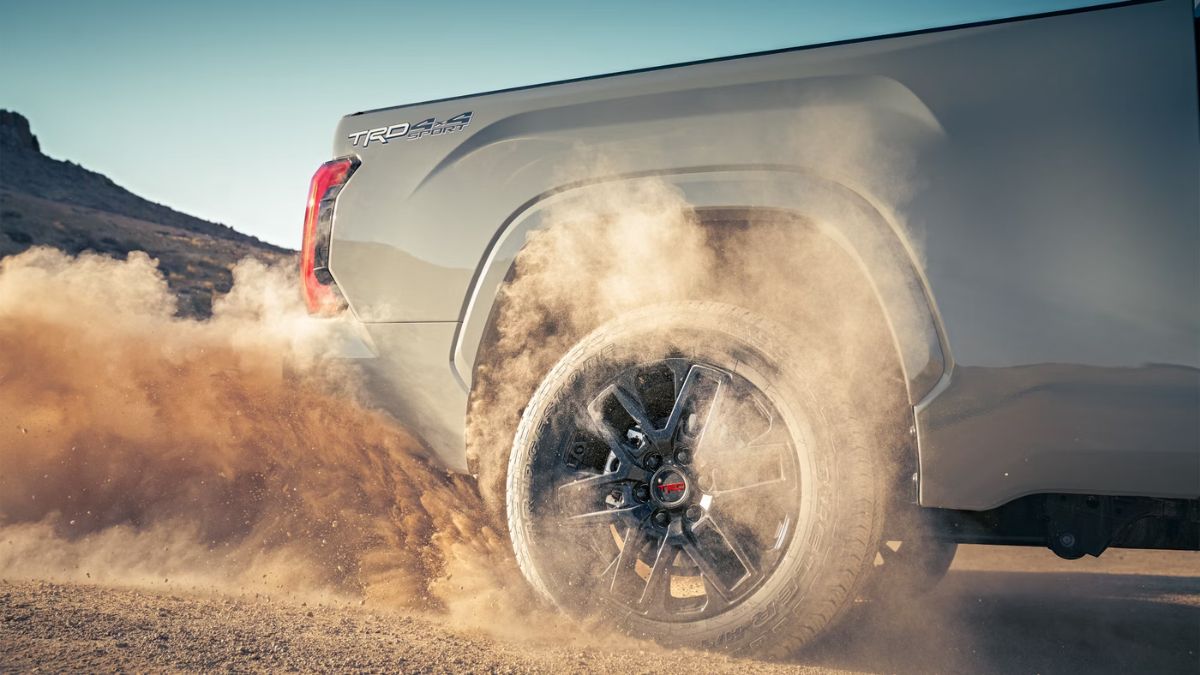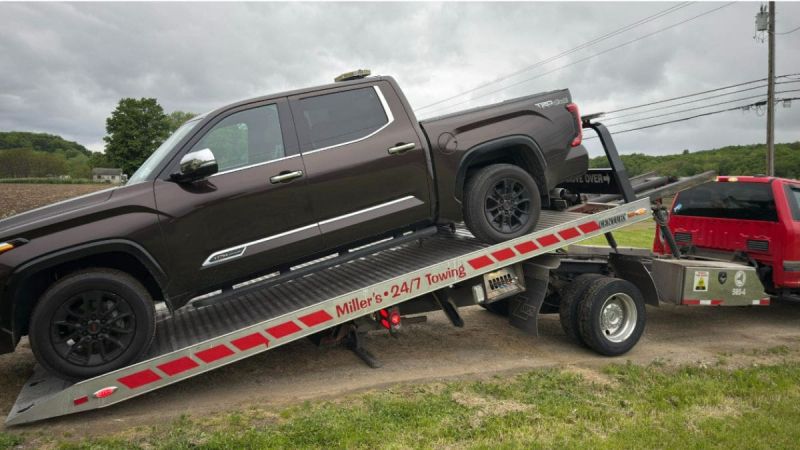It’s one thing to brace for unexpected repairs on a high mileage used truck, but when the breakdown happens just over a week into ownership, even if it’s used, it hits differently. That’s exactly what unfolded when I came across a post in the “2024-2028 Toyota Tundra Owners Forum” on Facebook tonight. The story came from Nicholas Cowen, who had just purchased a used 2023 Toyota Tundra. In the comments, it became clear the truck had already broken down just nine days after he brought it home. Summing it all up in one brutally honest line, Nicholas wrote, “Well, after 9 days of ownership, can’t say I’m too awfully impressed!”
Toyota has long been praised for building some of the most dependable trucks on the road. From the legendary bulletproof 5.7L V8s of the past to today’s new twin-turbo i-Force powertrains, many buyers associate the Tundra nameplate with proven reliability and long-term peace of mind. But for Nicholas, the experience didn’t live up to that reputation. His 2023 Tundra failed him almost immediately after purchase, and he’s far from alone.
What Really Happened
Nicholas posted a brief update in the group, but the real story unfolded in the comment section. When asked what happened, he explained, “I was driving home from work, passed a car, and that was it. Every light came on, no oil pressure, and it definitely sounds like it blew.” He later confirmed that the truck was a 2023 model and had been purchased used. In a follow-up response to another comment, Nicholas added, “Oh, don’t get me wrong, I’ve loved every second of this truck. Plenty of power, rides extremely smooth compared to any Ram I’ve owned or any other brand I’ve driven. Just a little pissed that after 9 days it came unglued. At least luckily it didn’t break down that far from my home, so I was able to coast in.”
The situation might sound rare, but it's part of a growing pattern. Several owners of 2022 and 2023 Tundras have shared similar experiences involving engine failures, particularly tied to low or disappearing oil pressure warnings. In fact, some have gone in for a routine service, only to be handed far more serious news, like in this case where a 2023 Toyota Tundra went in for an oil change and ended up needing an entirely new engine.

Are Recalls to Blame?
Another commenter, HL Mercader, simply asked, “What year?” Nicholas responded, “2023,” prompting further discussion in the group around whether his issue could be related to the known engine issue affecting these new powertrains. That concern isn’t unfounded. Toyota has issued recalls and service bulletins related to early production models of the i-Force engines,s raising concerns over internal engine durability and oil delivery.
Another user, Marc Lincoln, shared his own frustrating story: “My engine blew at 27k this past Sunday. It’s a 2024 Hybrid 1794 Edition. It’s within the warranty but there is no timeline to diagnose and repair. I was simply told, ‘we’ll call when we know something.’” His comment reflects a larger frustration many owners feel and not just with the breakdowns themselves, but with the uncertainty and silence that often follows once a vehicle is dropped off for service.
Despite the concerning failures, not everyone was quick to condemn the truck. Leonardo Silva Jr. offered a more optimistic outlook, saying, “You will most likely get a new engine from Toyota at no cost. If you allow them to fix it you will be very happy. Those trucks are awesome!”
And honestly, that seems to be the bittersweet truth for many new Tundra owners. These trucks are awesome when they work. They’re powerful, smooth, and well-designed, which offer a solid mix of modern tech and strong towing capabilities. Some owners, like the one in this story who switched from a Chevy to a Toyota, said the Tundra changed everything and described it as a game-changer. But that doesn’t change the frustration when something goes wrong.
A Closer Look at Toyota’s New Era of Trucks
I find situations like this both fascinating and frustrating. On one hand, Toyota is clearly evolving by replacing its aging V8s with more efficient and powerful turbocharged V6 engines. On the other hand, these modernized powertrains seem to come with a new learning curve for both the company and its customers. Buyers are being asked to trust the future of Toyota performance without the proven track record that made the older Tundras so legendary. When these newer models break down so soon, it undermines that trust and slightly knicks away at the reliability, as customers expect a seamless ownership experience.
It’s also a reminder that no brand, no matter how strong its legacy, is immune from growing pains during a major redesign. This era of turbocharged trucks is exciting, but it’s also more complex, which means that there's more room for failure. What buyers deserve now more than ever is not just innovation, but accountability and transparency when things go wrong.
Toyota is doing that though. They are being proactive and issuing recalls for affected trucks. Now all we can hope for is that the new engines that Toyota put in their trucks get the brand back on the track that most of us can remember.
Moral Lessons and Takeaways
- Early reliability matters: A breakdown within days of ownership is more than just a one-time scenario, as it raises questions about manufacturing consistency and quality control.
- Toyota’s reputation is being tested: The move to turbocharged engines and hybrids brings new performance but also new reliability concerns. Enthusiasts miss the days when 276,000 miles was the norm—like this owner who finally traded his 2007 Tundra after nearly two decades.
- Warranty support is key, but wait times hurt: Even when repairs are covered, vague service timelines can make the experience just as frustrating as the failure itself.
- Not all owners are unhappy: Many still love their trucks even after a failure, and some express total satisfaction once repairs are complete. This owner who switched from Dodge to a Tundra TRD Pro said it finally made sense why others loved them.
Let’s Hear From You
Have you experienced any engine or powertrain issues with your newer Toyota Tundra? How did your dealer handle the repair process?
And do you think Toyota is drifting away from its reputation for reliability? Or are these just isolated issues that will be ironed out in future models?
I'd love to hear your thoughts below, as they provide real world insight for us all.
Aram Krajekian is a young automotive journalist bringing a fresh perspective to his coverage of the evolving automotive landscape. Follow Aram on X and LinkedIn for daily news coverage about cars.
Image Sources: Toyota Gallery and the “2024-2028 Toyota Tundra Owners Forum” public Facebook group.
Set as google preferred source











